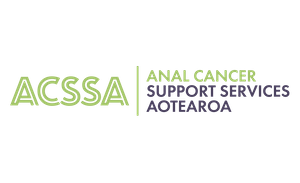
Prevention
We can reduce the number of people diagnosed with anal cancer in New Zealand through uptake of the HPV vaccine and by introducing screening.
HPV and cancer
Around 5% of ALL cancers in the world are caused by Human Papilloma Virus (HPV). There are more than 150 different subtypes of HPV - only some of these subtypes are associated with cancers. It is estimated that 92% of all anal cancers are caused by HPV subtypes 16 or 18. These HPV subtypes cause 70% of all cervical cancers, 89% of oropharyngeal cancers, 80% of vaginal cancers, 80% of vulval cancers and 63% of penile cancers.
HPV is spread by skin to skin contact and is the most common sexually transmitted infection in New Zealand. There are usually no symptoms of HPV, although some subtypes may cause warts. There is no cure for HPV, but most people will clear the virus from their bodies. It is unknown why some people do not clear HPV from their bodies.
Why the HPV vaccine is so important
The HPV vaccine is available in New Zealand. It will protect people from getting the dangerous cancer-causing HPV subtypes. The recommendation is for children to be immunised at 11 and 12 years old. Two doses of the vaccine need to be given, six months apart. By vaccinating children against HPV, most cases of anal, cervical, oropharyngeal, vaginal, vulval and penile cancers will not occur.
We will be advocating for the maximum uptake of the HPV vaccine by young people in New Zealand.
Screening for anal precancer
If the cells lining the anal canal are infected by HPV then sometimes they may undergo pre-cancerous changes called high grade squamous intra-epithelial lesions (HSIL). This generally does not cause symptoms so people are not aware that anything is wrong. Over time these precancerous changes may develop into invasive cancer. This is when symptoms such as bleeding, itchiness, discomfort or a lump may occur.
A recent study in the US has shown that if you find people with anal precancerous cells (HSIL) and remove these cells, 60% fewer invasive cancers occur. You can read more about the US study here.
We believe New Zealand should have a screening program for those at risk of anal cancer. At the moment there is no consensus who should undergo screening. Those at higher risk include people living with HIV, people who have had other cancers or precancerous lesions caused by HPV, and transplant recipients who are on immunosuppressant medications. These are likely to be the people who would be recommended to undergo screening for anal cancer.
Clinical trials
There are no clinical trials with recruitment from New Zealand in the area of anal cancer. This organisation would like to see NZ patients being offered an opportunity to participate in trials.
Here is a link to all the anal cancer trials world wide which are registered
